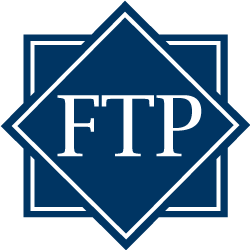Luxembourg
New alternative investment fund, AAA rating & corporate tax reform

April 4 Framework for the Reserved Alternative Investment Fund (RAIF), a new type of Luxembourg-domiciled fund, is expected to be in place by the end of May 2016. The RAIF is managed by an authorized alternative investment fund manager based either in Luxembourg or another EU member state, allowing it to be marketed to professional investors across the EU.
The fund’s appeal derives from its contractual flexibility, short time to market and pan-European availability. Not subject to the supervision of the CSSF, Luxembourg’s supervisory authority, the RAIF can be put into place quickly and addresses needs that traditional solutions cannot fulfill. Full article
March 23 Credit rating agency Standard & Poor’s (S&P) confirmed Luxembourg’s triple A rating with a stable outlook. S&P emphasized the Grand Duchy’s favorable economic climate, above-average growth rates and financial sector diversification. Luxembourg currently holds this top rating from the three leading agencies: S&P, Moody’s and Fitch, helping the country rank as the third most competitive European financial center in the 19th Global Financial Centers Index released on April 6th. Full article
February 29 Finance Minister Pierre Gramegna announced the much-discussed tax reform plan that will see the corporate tax rate decrease by three percentage points over the next two years, dropping from 21 to 19 percent in 2017 and further to 18 percent in 2018. These reform measures are expected to be voted on later this year.
Small startup companies with an annual taxable income of less than €25,000 are to receive a lower rate of 15 percent. Additionally, the use of generated losses to offset against future income will be restricted. Specifically, losses generated after January 1, 2017, can be carried forward for a maximum of 10 years. As a result of these measures, the total tax burden in Luxembourg City will be 26.01 percent, less than it was in 2016. Full article
World
EU proposes tax transparency rules & VAT action plan Scotland to freeze income tax rates & Italy ups fiscal deficit goal

Europe, April 14 The EU’s five largest economies, Germany, France, Italy, Spain and the UK, have agreed to automatically exchange information on the beneficial owners of businesses and trusts. They are now encouraging all G20 nations to follow suit. The UK has taken this one step further and already stated that it will make ownership information public. Full article
Europe, April 12 In line with its commitment to tackle tax avoidance, the European Commission proposed new public reporting requirements for multinationals operating in the EU and in tax havens. On the list were public tax transparency rules that are developed on a country-by-country basis. Once implemented, the new measures will apply to roughly 6,500 companies operating in the EU with global annual revenue exceeding €750 million, leaving small- and medium-sized companies unaffected. Contextual information — turnover, employees, etc. — for each EU country and so-called tax haven in which a company is active would be shared, thereby addressing concerns triggered by the Panama Papers. Full article
Italy, April 8 Italy cut its 2016 economic growth forecasts while raising its 2017 fiscal deficit goal from 1.1 percent of GDP to 1.8 percent, insisting it needs more flexibility than the European Commission is allowing. The Commission — already weary after Italy raised its 2016 deficit goals last autumn — is scheduled to pass its final judgement on Rome’s 2016 budget by the end of May. Full article
Europe, April 7 The European Commission presented an action plan that aims to bring the European Union closer to a single EU VAT in the hopes that it will support fraud policing, business growth and the digital economy. The VAT gap — difference between expected and actual VAT revenue — was almost €170 billion in 2013, €50 billion of which is estimated to be due to cross-border fraud. To address these issues and support the Single Market, the plan includes immediate measures to tackle fraud and give Member States more autonomy to choose their own rates. Full article
Scotland, March 22 The ruling Scottish National party (SNP) has announced that it will freeze income tax rates until 2021-22, a move that aligned them further with the Scottish Conservatives but angered the Scottish Labour Party and the Scottish Liberal Democrats, both labelling the decision too passive. This announcement was made in anticipation of April 2017, when Scotland will gain control over income tax as part of a 2014 deal with the UK. Full article
Share your goals with us & ask how we can help you get there. Questions about trends, regulations & requirements? Curious about Luxembourg? Fiduciary Tucci & Partners can help answer your queries & find solutions.
